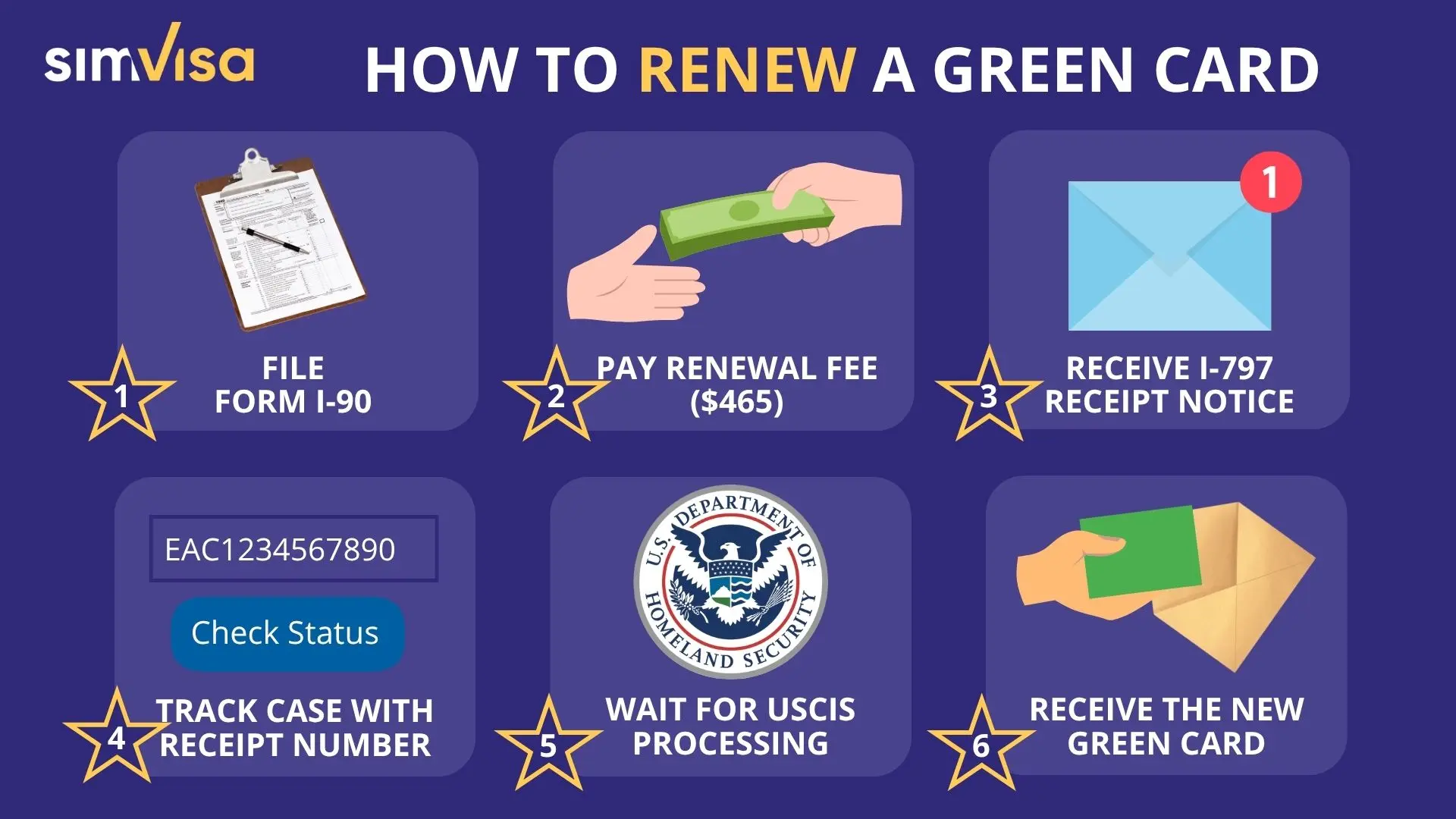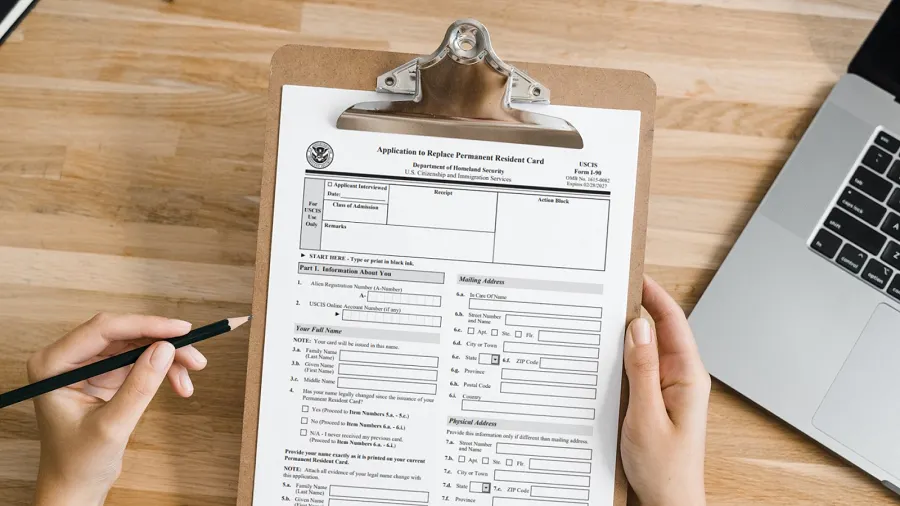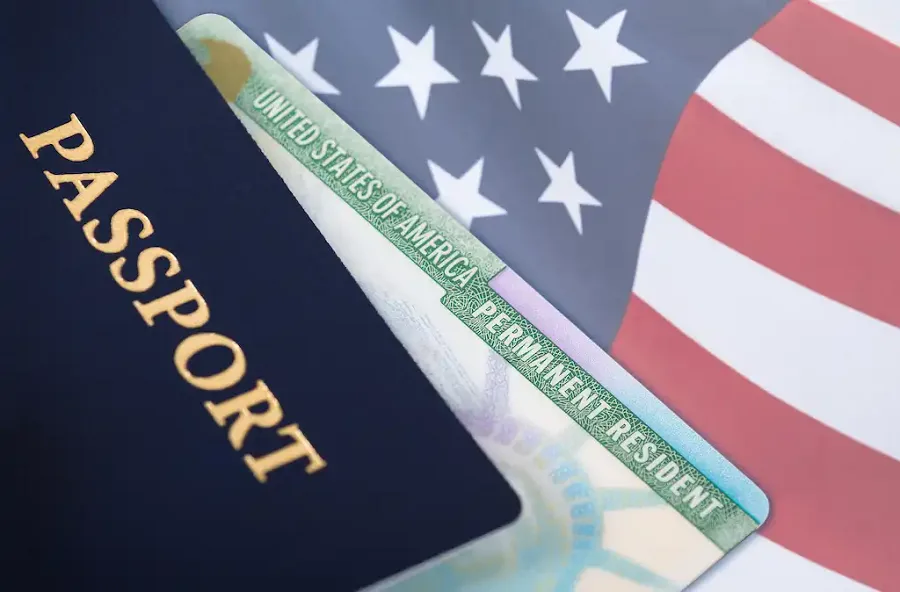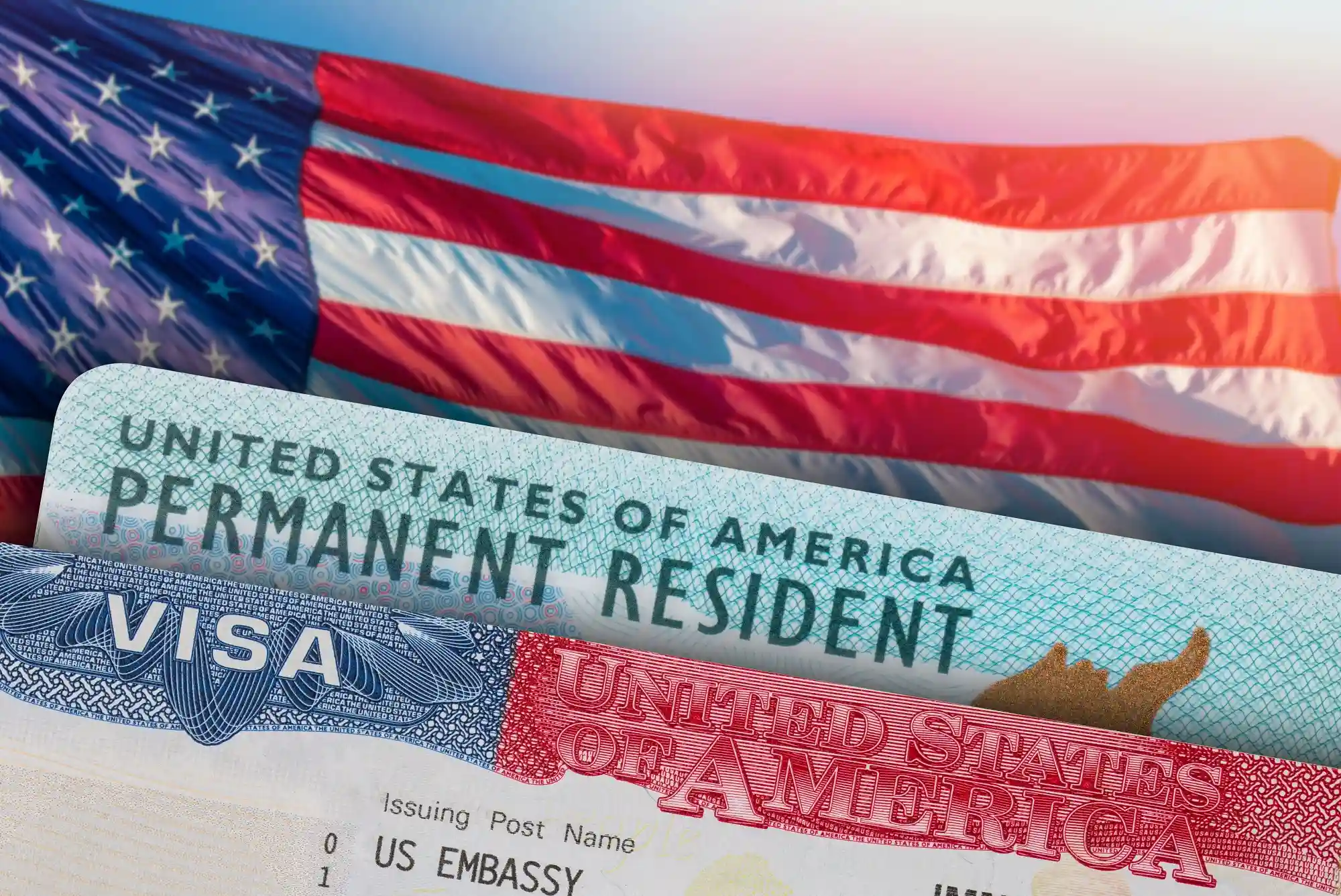Your green card proves your lawful permanent resident status — but it doesn’t last forever. If your permanent resident card is nearing its expiration date, or it’s already expired, don’t panic, but don’t ignore it either.
With tighter enforcement, shifting immigration priorities, and possible changes under another Trump administration, carrying an expired green card could trigger delays, missed opportunities, or even unnecessary legal trouble, making it imperative that you get a skilled green card lawyer on your side. Here's what you need to know — and what to do next.
How Long Is a Green Card Valid?
Most green cards are valid for 10 years and show both the expiration date and the date you became a lawful permanent resident.
Some older green cards (issued between 1979 and 1989) have no expiration date and are technically still valid. However, they often cause problems with identity verification, especially if the photo is outdated. CBP officers may delay your reentry, and Global Entry kiosks are unable to read these cards.
While USCIS has discussed requiring updates to these older cards, no rule has been enforced yet. Still, it’s strongly recommended to replace a green card without an expiration date to avoid delays or issues with travel, work, or using immigration services.
Green Card Renewal Basics

If your green card is expiring soon, expired, lost, or damaged, here’s what to know.
When to Renew
You should file Form I-90 (Application to Replace Permanent Resident Card) up to 6 months before your card’s expiration date. This is the same form used to:
- Replace a lost green card
- Correct incorrect information
- Renew a card with an old photo or a damaged chip
The green card renewal fee is $465 (or $415 for online filing), plus an $85 biometrics appointment fee.
Receipt notices for Form I‑90 automatically extend your green card validity by 36 months during USCIS processing, giving you legal protection while waiting.
Note: Only the 01/20/25 edition of Form I-90 is accepted. All pages must be from the same edition, or USCIS will reject your renewal application.

How to File
You can file online using a USCIS online account or submit a paper application by mail. Online filing allows you to receive your receipt number and case updates more quickly.
Once you receive your receipt notice, you can track your application using the USCIS case status tracker at uscis.gov/casestatus.
Conditional Green Card Expired
If you have a 2-year conditional permanent resident card, you must file a different form:
These must be filed within 90 days before the expiration date to remove the condition and receive a 10-year green card. You cannot wait until after the green card expires; instead, you must file within the 90-day period before the expiration of the 2-year green card. Otherwise, you risk being removed from the country.
Top 5 Problems You May Face with an Expired Green Card
An expired 10-year green card alone does not initially threaten your overall legal immigration status. However, with an expired green card, you face a number of difficulties that can significantly hamper your efforts to provide for yourself and your family and potentially prevent you from freely traveling in and out of the country.
Here are some common problems you may encounter with an expired green card.
1. Getting a New Job

Employers are legally required to verify your status using Form I-9. During this step, the new company will verify your identity and confirm that you have all of the required "List A" documents, one of which is a valid green card. If your green card has expired, most employers won’t accept it as a valid employment eligibility verification.
Even if your status is still valid, an expired card can result in lost job offers, trouble with onboarding, or delays in getting hired.
One possible workaround for this issue is a foreign passport with a temporary I-551 stamp, which satisfies the List A requirement. However, the stamp must be current and inside your passport. If it's expired or missing, you’ll need to schedule an appointment at your local USCIS office to get a new one, and due to limited availability, that can take time. If your employer can’t wait for your documents to be updated, you risk losing your job and other future opportunities.
If you have an expired green card, most states won’t let you obtain or renew a professional license, which means you can’t legally work in licensed fields like healthcare, law, real estate, accounting, or engineering. Without a valid card, you risk losing your ability to start or continue professional employment.
2. Reentering the U.S.

Traveling with an expired green card can seriously disrupt your ability to return to the U.S. Whether you’re abroad for vacation, work, or an emergency, an expired card puts you at risk of delays, denial of entry, or being refused boarding by the airline, since they must verify your permanent resident status before allowing you to fly.
If Your Green Card Expires While You’re Inside the U.S.
If you're still in the U.S. but plan to travel soon, you have a few options:
- File Form I-90 immediately to renew your card. Once USCIS issues the I-797 receipt notice, you can use that notice along with your expired card to re-enter the U.S.
- You can also request an ADIT stamp in your valid foreign passport, which acts as a temporary I-551 stamp proving your lawful permanent resident status and allowing you to travel. This stamp must be obtained through an in-person USCIS appointment, which can take several weeks, so plan ahead accordingly.
Note: Even with a temporary stamp, you’re still required to file Form I-90 to begin the green card renewal process.
If Your Green Card Expires While You’re Outside the U.S.
If you're abroad and your green card expires before your return, you may not be able to board your flight or gain reentry. While airlines are technically allowed to board travelers with an expired 10-year green card, many will refuse unless you have current proof of residency.
In that case, you’ll need to:
- File Form I-131A at the nearest U.S. consulate to request a boarding foil (formerly known as a transportation letter).
- Allow several days to two weeks for processing.
- Use the boarding foil to return to the U.S. without penalty to the airline.
- Once you’re back, immediately file Form I-90 and pay the renewal fee to update your card.
To avoid these complications, always check your card’s expiration date before international travel and renew early if necessary.
3. Driver's License Renewal
Most state DMVs require a valid permanent resident card for license renewal. If your card is expired, you might be forced to drive without a license — or stop driving altogether — until you file a green card renewal application and receive a receipt notice.
While a temporary I-551 should suffice to acquire a license, in practice, it depends on the state and sometimes the particular DMV. Contact your local DMV for more information.
4. Buying a Home
Buying a home is a major goal for many green card holders, but an expired green card can get in the way. Most mortgage lenders require proof of current permanent resident status, and without a valid green card, your mortgage application may be denied.
You may still qualify if you have a foreign passport with a valid temporary I-551 stamp, which proves your lawful permanent resident status. Just make sure your passport is unexpired and you’ve submitted Form I-90 to renew your green card.
5. Applying for Citizenship

If you plan to apply for naturalization, USCIS still expects you to have an unexpired green card — or at least proof that you’ve filed Form I-90 to renew or replace it.
While you're still eligible for citizenship, not having current documents can delay your application process or require rescheduling of your interview.
Are Green Card Holders in Danger Under Trump?
If you’re a green card holder, the recent policy changes under the Trump administration could affect you, especially if your card is expired or close to expiring.
In early 2025, Executive Order 14159 gave immigration officers more power to quickly remove people who can’t prove their legal status on the spot. That includes permanent residents who aren’t carrying a valid green card or renewal notice.
Other changes in 2025 have made things stricter for green card holders:
- Airlines are more likely to deny boarding if your green card has expired, even if you're still a legal resident.
- Border agents are conducting more thorough checks, especially if your card is outdated or your photo appears to be too old.
- Some green card holders with old criminal records or political involvement have been detained or delayed when reentering the U.S.
- Appointments at USCIS offices are increasingly difficult to obtain, making renewing your card on time more important than ever.
Don’t take chances. Keep your green card current, carry proof of your status, and renew well before it expires. If you’re not sure what to do, talk to an immigration lawyer.
FAQs
What if I get caught without my Green Card?
Permanent residents are required by law to carry their green cards with them at all times. However, most do not, and the authorities rarely enforce this rule if at all.
That said, the potential penalty for not having a valid green card on your person is a fine of $100 and up to 30 days in jail.
Does an expired Green Card lead to deportation?
If your 10-year green card expires, your underlying status as a lawful permanent resident does not change. Therefore, immigration authorities may not deport you from the United States for that reason alone.
How long do I have to wait until my Green Card is renewed?
As of July 2025, green card renewal wait times have increased significantly, with 8 to 12+ months common due to record backlogs (Form I-90 now among the most delayed USCIS forms).
Need Help with Your Green Card Renewal?
Whether your green card is lost, expired, or about to expire, don’t wait until it causes problems.
At SimVisa, we help permanent residents renew, replace, and protect their status — with no guesswork and no missed steps.
Contact us today to stay secure and avoid unnecessary delays.












